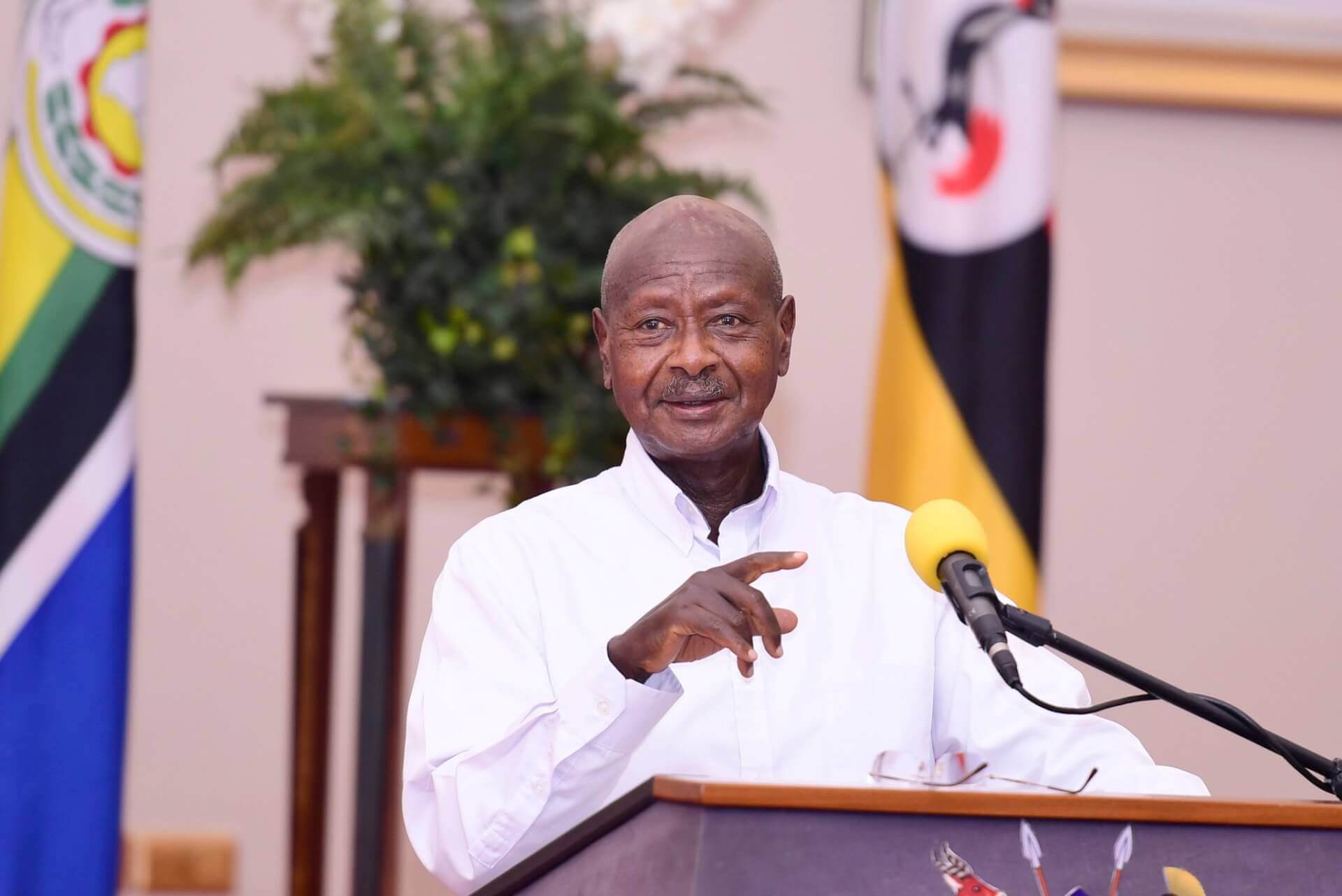Opposition to Ugandan President Yoweri Museveni is growing, with the number of presidential candidates for the 2021 election continuing to exponentially increase virtually every week. In fact, at least 43 individuals have put their name forward.
The spokesperson for the electoral commission, Jotham Taremwa, said, “We have so far registered between 43 to 45 individuals who say they want to stand for the presidency. Majority of them are independent aspirants”.
Under Yoweri’s governance, Uganda ranks as one of the most corrupt countries in Africa. He emerged as a “freedom fighter and a liberator” in 1986, and has ruled the country for over three decades since, and is renowned for suppressing political dissent and opposition, and has overseen Uganda’s slow descent into a failed state. The judiciary essentially acts as an arm of his rule and the police do his bidding on the streets to clamp down on uprisings and protests.
Aside from his political corruption, Museveni has also failed to deliver on his economic promises. He put forth the National Development Plan, to focus on Uganda’s agriculture, tourism, and minerals industries, with a goal of becoming a lower-middle-income country by 2020 and an upper-middle income country by 2040. However, with an annual GNI per capita of just $780, Uganda has fallen well short of this goal, with the minimum GNI per capita required to be classified as a lower-middle-income country standing at between $1,036 and $4,045.
Amid rising political opposition, it seems that Museveni is using the coronavirus pandemic as a pretext to extend his rule and silence other presidential aspirants and critics of his governance. In May he said, “To have elections when the virus is still there… It will be madness.”
Museveni has already indicated his willingness to bend the rules. For example, the parliament passed a bill that removed the presidential age limit of 75 years so that Museveni could contest the 2021 elections. Indeed, he has even silenced opposition within his own National Resistance Movement (NRM) party. In early June, the constitutional court dismissed a petition by eleven NRM Members of Parliament (MPs) challenging a resolution that was passed by the party’s Central Executive Committee (CEC) that said that Museveni would be the only candidate from the party for the 2021 election.
In light of these circumstances, the opposition had hoped to form a united front and boycott the elections so that Museveni could no longer be seen as the legitimate ruler of Uganda. However, as one of the candidates said off the record, “To push for a boycott you must be sure that you have mobilised the population and have it behind you, which I don’t think the opposition has in unanimity; otherwise you risk the NRM picking from the fake political parties that they have on the register to put up candidates and manipulate the whole process to appear like there was contestation.”
The election is due to be held between January 10 and February 8 of 2021. While Museveni can fall bank on the fact that he is already known to the voter base and that he has a whole infrastructure in place to get his message across, opposition candidates do not have that luxury. In fact, the election commission chairman, Simon Byabakama Mugenyi, banned campaign rallies and said that candidates must use media to conduct election campaigns. However, opposition parties have said that their access to broadcast media has been severely limited, with security agencies stopping them from appearing on political shows. In addition, restricting campaigns to media limits candidates’ access to rural areas, where access to the internet and television is low, thus impeding these citizens’ ability to make informed political decisions, and the ability of candidates to spread their message.
In what may be a sign of things to come, in 2011, the public broadcaster, Uganda Broadcasting Corporation, refused to air the advertisements of one of the main opposition candidates, Kizza Besigye, even after he paid for the airtime.
Thus, opposition candidates are left with two choices. The first is to boycott the election, without the promise of other opposition candidates following suit. Moreover, even if all opposition parties and candidates do boycott the election, there is the very real possibility of Museveni simply running a sham election, with fake opposition on the ballots. The second option is to play by Museveni’s rules of only using the media to campaign, and accept that access to that media is going to be severely restricted. Whichever option they choose, it seems that political opposition in Uganda is fighting a losing battle, with the odds stacked against them.
Image Source: Soft Power News
Ugandan President Museveni Continues to Create Insurmountable Obstacles For Opposition
Yoweri Museveni has been in power since 1986 and has overseen Uganda’s descent into chaos.
July 8, 2020

